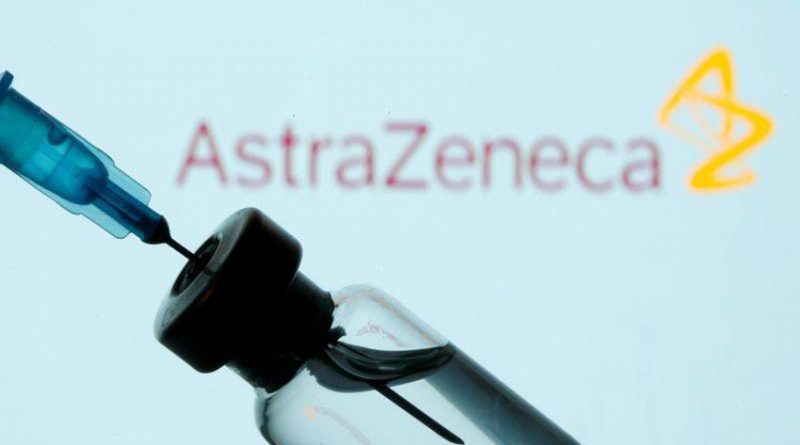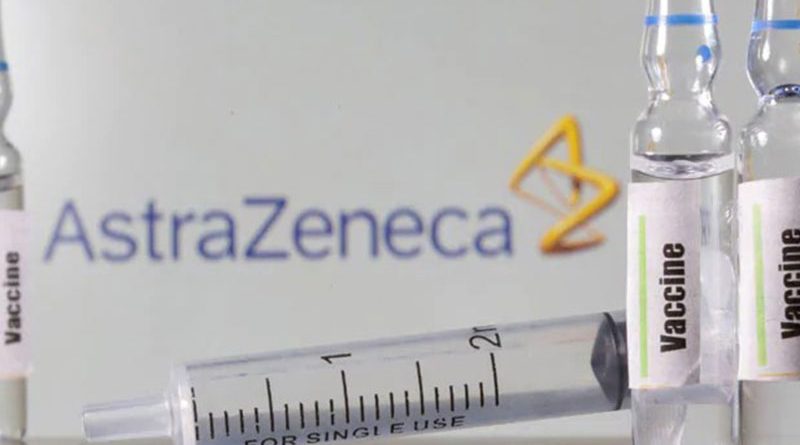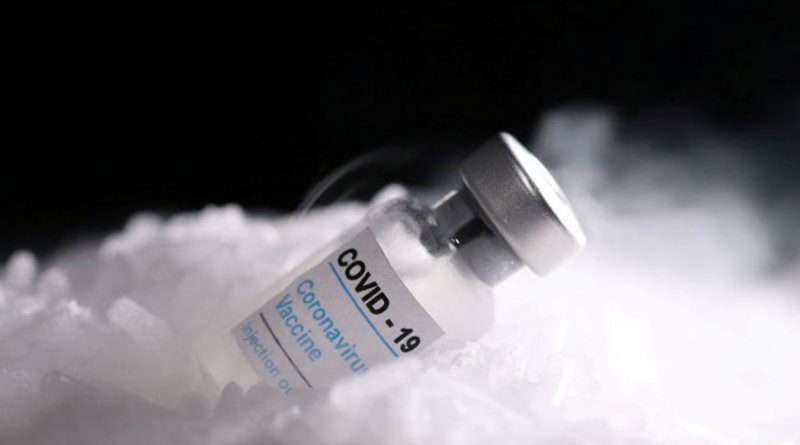ASTRAZENECA’S COVID-19 vaccine is safe and effective and should be deployed widely, including in countries where the South African variant of the coronavirus may reduce its efficacy, a World Health Organization panel said yesterday.
In interim recommendations on the shot, the Strategic Advisory Group of Experts on Immunisation (SAGE) panel said the vaccine should be given in two doses with an interval of 8 to 12 weeks, and should also be used in people aged 65 and older.
Even in countries such as South Africa, where questions have been raised about the AstraZeneca vaccine’s efficacy against a newly-emerged variant of the SARS-CoV-2 coronavirus, “there is no reason not to recommend its use”, SAGE’s chair, Alejandro Cravioto, told a briefing.
“We have made a recommendation that even if there is a reduction in the possibility of this vaccine having a full impact in its protection capacity, especially against severe disease, there is no reason not to recommend its use even in countries that have a circulation of the variant,” he said.
“We have thousands of people dying from the infection, in many countries of the world, daily,” Cravioto said. “Anything we can do to use a product that might reduce that is totally justified.”
The WHO said it expected by mid-February to finalise its review of the shot for emergency use approval.
South Africa this week paused part of its rollout of the AstraZeneca vaccine after data from a small trial showed it did not protect against mild to moderate illness from the 501Y.V2 variant of the coronavirus now dominant in the country.
The WHO said those preliminary findings “highlight the urgent need for a coordinated approach for surveillance and evaluation of variants” and their impact on vaccine efficacy.
The WHO’s immunisation expert Kate O’Brien, said the agency was talking with experts and ministry officials in South Africa and providing advice.
“The important thing to remember is the AstraZeneca vaccine is an efficacious vaccine,” she said. “And it is an important vaccine for the world given the short supply that we have.”
Global health experts welcomed the SAGE recommendations.
Jeremy Farrar, director of the Wellcome global health trust, said the AstraZeneca shot would “make an enormous difference to almost all countries and must be rapidly rolled out globally to save lives and get this pandemic under control.”
South Africa will suspend use of AstraZeneca’s COVID-19 shot in its vaccination programme after data showed it gave minimal protection against mild to moderate infection caused by the country’s dominant coronavirus variant.
Health Minister Zweli Mkhize said on Sunday the government would await advice from scientists on how best to proceed, after disappointing results in a trial conducted by the University of the Witwatersrand.
The government had intended to roll the AstraZeneca shot out to healthcare workers soon, after receiving 1 million doses produced by the Serum Institute of India on Monday.
Instead, it will offer vaccines developed by Johnson & Johnson and Pfizer in the coming weeks while experts consider how the AstraZeneca shot can be deployed.
“What does that mean for our vaccination programme which we said will start in February? The answer is it will proceed,” Mkhize told an online news briefing.
“From next week for the next four weeks we expect that there will be J&J vaccines, there will be Pfizer vaccines. So what will be available to the health workers will be those vaccines.”
“The AstraZeneca vaccine will remain with us … up until the scientists give us clear indications as to what we need to do,” he added.
The announcement by the South African government came after the British drugmaker disclosed that its vaccine, developed with the University of Oxford, appeared to offer only limited protection against mild disease caused by the South African variant of COVID-19, based on early data from a trial.
The study from South Africa’s University of the Witwatersrand and Oxford University showed the vaccine had significantly reduced efficacy against the South African variant.
Among coronavirus variants currently most concerning for scientists and public health, experts are the so-called British, South African and Brazilian variants, which appear to spread more swiftly than others.
“In this small phase I/II trial, early data has shown limited efficacy against mild disease primarily due to the B.1.351 South African variant,” an AstraZeneca spokesman said.
The newspaper said none of the more than 2,000 trial participants had been hospitalised or died.
“However, we have not been able to properly ascertain its effect against severe disease and hospitalisation given that subjects were predominantly young healthy adults,” the AstraZeneca spokesman said.
The company said it believed its vaccine could protect against severe disease, given that the neutralising antibody activity was equivalent to that of other COVID-19 vaccines that have demonstrated protection against severe disease.
The trial, which involved 2,026 people of whom half formed the placebo group, has not been peer-reviewed, according to The Financial Times.
While thousands of individual changes have arisen as the virus mutates into new variants, only a tiny minority are likely to be important or change the virus in an appreciable way, according to the British Medical Journal.
“Oxford University and AstraZeneca have started adapting the vaccine against this variant and will advance rapidly through clinical development so that it is ready for Autumn delivery should it be needed,” the AstraZeneca spokesman told the Financial Times.
On Friday Oxford said their vaccine has similar efficacy against the British coronavirus variant as it does to the previously circulating variants.
Source - The African Mirror
THE charity arm of the Vatican and Roman Catholic Church has urged the United Nations to hold a Security Council meeting to designate the equitable distribution of COVID-19 vaccines as a global security issue.
An appeal by two senior Vatican cardinals and the secretary-general of Caritas Internationalis (CI) said rich nations had a moral obligation to see that vaccines reach the poor, refugees and minorities.
“(We) call for a Security Council meeting to address the issue of access to the vaccines as a global security problem with firm political decisions based on multilateralism,” the appeal text said.
“This pandemic is a global human security problem that threatens the whole human family. Addressing the vaccines issue from the perspective of a narrow national strategy might lead to a moral failure in meeting the needs of the most vulnerable across the globe,” the appeal said.
It was signed by Cardinal Luis Antonio Tagle, who is head of the Vatican’s worldwide missionary arm and also CI president, Cardinal Peter Turkson, head of the Vatican’s Integral Human Development department, and CI Secretary-General Aloysius John.
The appeal further summoned affluent nations to remit the debt of the poorest nations so that money could be diverted to improving national health systems.
It said holders of vaccine patents should set up production hubs in Africa, Asia and Latin America to speed up delivery to the poorest populations.
Rich nations that look after only their own good could face another crisis in the future if poorer nations are neglected now and the pandemic gets out of hand in the global south, it said.
The COVAX vaccine-sharing facility, which includes two U.N. agencies, has revealed that has allocated at least 330 million doses of vaccines for poorer countries.
Source – Thomson Reuters Foundation
THE COVAX coronavirus vaccine sharing scheme has allocated at least 330 million doses of COVID-19 vaccines for poorer countries in the first half of 2021, the GAVI vaccine alliance said yesterday.
The allocation includes an initial 240 million doses of the AstraZeneca-Oxford COVID-19 vaccine made by the Serum Institute of India, an additional 96 million doses of the same shot made by AstraZeneca, plus 1.2 million doses of Pfizer -BioNTech’S COVID-19 vaccine.
Publishing an interim distribution plan, the COVAX Facility, which is co-led by GAVI, the World Health Organization, the Coalition for Epidemic Preparedness Innovations and the U.N. Children’s Fund, said doses would cover an average of 3.3% of total populations of 145 participating countries.
COVAX said the allocations would be subject to various caveats, including WHO emergency listing and countries’ readiness and acceptance.




